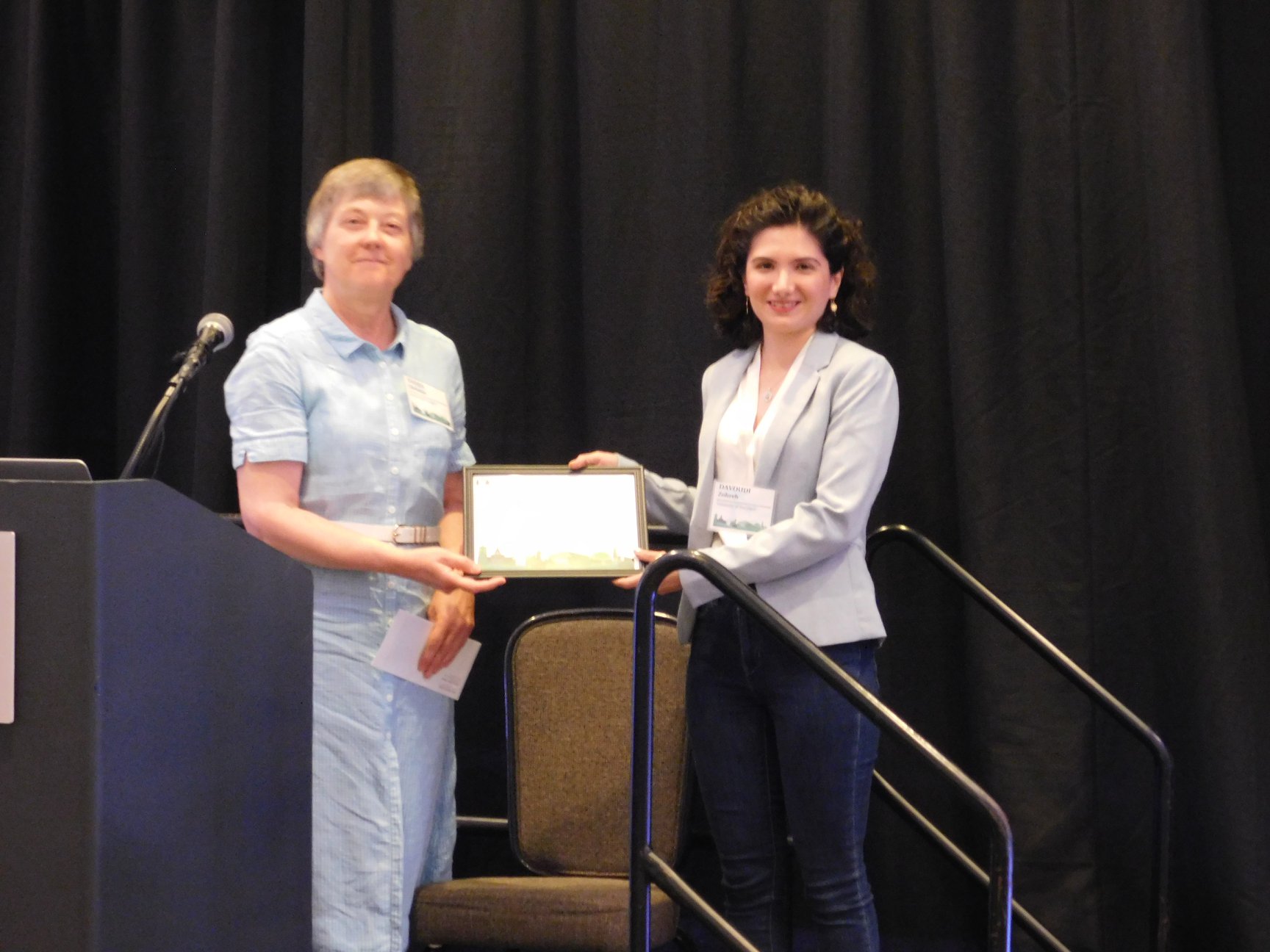- Details
-
Published: Tuesday, July 03 2018 07:28
Michelle Girvan, who was promoted to the rank of Professor, works in the emerging area of network science, which focuses on complex connectivity patterns among interacting units and joins physics with the domains of mathematics, biology, environmental studies, economics, sociology, and psychology, among others. Her analysis of networks helps explain developments in settings as diverse as gene encoding and the nation’s electric grid. Girvan received her Ph.D. in 2004 from Cornell University, and has held appointments at the Santa Fe Institute and the Institute for Advanced Study. She holds a joint appointment in the Institute for Physical Sciences and Technology. In 2017 she received the Richard A. Ferrell Distinguished Faculty Fellowship and was elected a Fellow of the American Physical Society.
Min Ouyang, who was promoted to the rank of Professor, is a member of the Center for Nanophysics and Advanced Materials. His experiments at the juncture of physics and chemistry involve creating novel and complex nanomaterials via the bottom-up synthetic strategy and understanding nanoscale physics by using ultrafast and single photon optics, with potential applications ranging from quantum information processing to thermal management fabrics. He received his Ph.D. in 2001 from Harvard University and did postdoctoral work at the University of California in Santa Barbara before joining UMD. Among his honors are an Alfred P. Sloan Fellowship, an NSF Career Award, an Office of Naval Research Young Investigator Award, a Beckman Young Investigator Award and a Scialog Fellowship from the Research Corporation.
Ayush Gupta, who was promoted to the rank of Associate Research Professor, works in physics education research, developing new materials and teaching practices to help students gain greater competence with disciplinary content and practice. He has contributed to the articulation and modeling of the contextual dynamics of core disciplinary practices in STEM such as mathematical sense-making and tinkering. In another thread of work, he has contributed to modeling how cultural practices influence the creation of more/less inclusive experiences for STEM students. His work has also introduced novel models for how engineering students think about ethics and social responsibility, connecting cognitive theories with social theory and ideas from Science and Technology Studies. He received his Ph.D. in electrical engineering from this campus, and is also a Keystone Instructor in the Clark School of Engineering.
Ivan Burenkov has been promoted to Assistant Research Scientist. He received his Ph.D. in 2012 from Moscow State University, and has been a postdoctoral researcher with Adjunct Professor Alan Migdall since 2015. His interests include quantum enhanced measurements for advanced optical communication, bio-medical applications and photon frequency conversion
Nicholas Butch, who was a Rolfe Glover Postdoctoral Fellow in CNAM from 2008-11, was promoted to Adjunct Associate Professor. In addition, three other NIST scientists now have appointments in the department: Thomas Purdy and Michael Zwolak as Adjunct Assistant Professors, and Sergey Polyakov as Adjunct Associate Professor.

